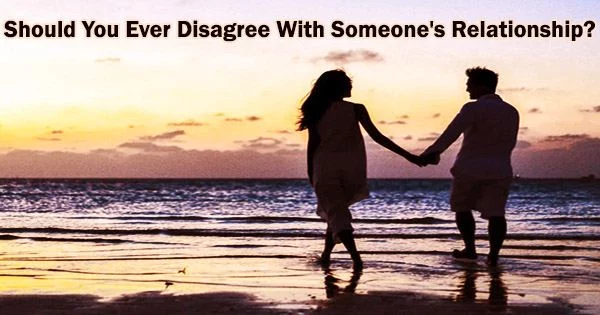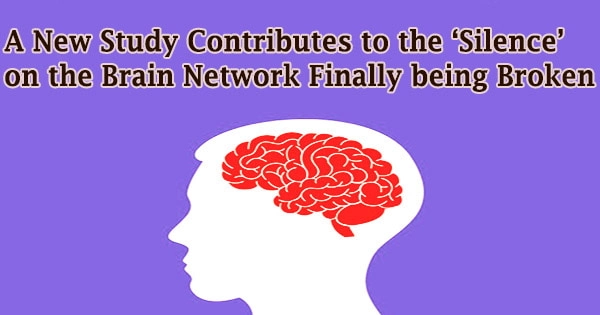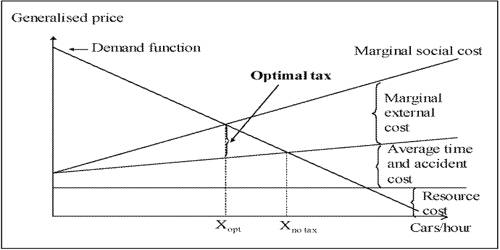Not all romantic partnerships are greeted with joyous approbation from friends and family, as the plots of many Netflix and Hollywood movies serve as a reminder. Indeed, it is a regular occurrence to have at least one friend or family member voice some kind of disapproval for your relationship, whether discreetly or not so subtly.
It can feel as though you are forced to choose between ending your romantic relationship and cutting ties with your disapproving loved one, however sometimes the dislike fades as they come to know your partner better.
A surprising lack of research has been done on how such disapproval can alter the dynamics of a friendship or family relationship, despite the fact that almost everyone can relate to either the experience of having someone else disapprove of one of their relationships or the experience of disapproving of another person’s relationship.
Are There Costs to Expressing Relationship Disapproval?
We explored what happens to the perceived closeness a person feels toward a friend or family member who expresses disapproval of their romantic relationship.
The opinions of our friends and family members about our romantic relationships matter, as a great deal of study has conclusively shown. People who feel that their romantic relationship is receiving greater societal support and approval generally report better relationship well-being as well as less problems with their mental and physical health.
Relationship outcomes are significantly correlated with felt support for a relationship. Even after many years of marriage, the well-being and even durability of the partnership can suffer from perceived support for the union from significant friends and family members.
Furthermore, while people in same-sex relationships typically report feeling less overall support for their relationships than people in mixed-sex relationships, the overall pattern of social support’s association with relationship well-being and health is typically very similar across relationship types.
We do, however, know a lot about what happens to a romantic connection as a result of differences in perceived support and acceptance, although we know very little about what happens to the relationship between the people in the vilified relationship and the person voicing disapproval.
We conducted a survey with 703 people who stated that at least one friend or family member had expressed some level of disapproval of their romantic connection in order to further investigate this. We then asked the participant to tell us not only about their romantic relationship but also about their relationship with the disapproving friend or family member (i.e., social network member).
Participants were asked to rate their current level of closeness to the person on their social network, their level of closeness to them before they expressed any disapproval of their romantic relationship, and their level of closeness to them during the time when the person’s level of disapproval peaked.
In comparison to how close they felt to the disapproving social network member before any criticism was communicated, participants reported a decrease in their perceived closeness to that person. The drop in reported emotional intimacy is also inversely correlated with the perceived level of disapproval of the romantic relationship among social network users.
In other words, if you are on the fence concerning whether to tell your friend or family member how much you disapprove of their new partner, you may want to first consider whether your relationship is strong enough to withstand a drop in closeness.
This is crucial for friends because, when comparing how much intimacy recovered over time, we found that the pattern changed depending on whether the offending social network user was a friend or family.
Family ties tended to rekindle, albeit they never quite reached their “pre-disapproval” levels of intimacy. But there was no such comeback for pals. While it can be difficult to completely detach oneself from a family member, even if they do present obstacles to your romantic connection, it may just be simpler to exclude disapproving individuals from our social groups.
What About Same-Sex Relationships?
Individuals in same-sex partnerships expressed much higher dissatisfaction for their relationship than did participants in mixed-sex relationships, which is consistent with prior studies. Comparatively to participants in mixed-sex partnerships, the average degree of closeness between individuals in same-sex relationships and the people of their social networks who disapproved of them was also generally lower.
The course of participants’ closeness to the social network member through time varied from one same-sex participant to another, as did participants in mixed-sex and same-sex partnerships. When people felt their loved ones disapproved of them, their intimacy decreased far more than people in mixed-sex partnerships reported.
Potentially making it more difficult to maintain a close relationship with the disapproving friend or relative is the possibility that when people in same-sex partnerships sense criticism of their relationships, they automatically also perceive dislike of their own identities.
Do the Social Network Members Agree?
We also had a smaller sample of 42 dyads where both the individual in a relationship and their disapproving social network member supplied information regarding perceived closeness in addition to asking the 703 people in relationships to share their experiences. Our analyses revealed disapproving social network members also perceived the same pattern of reduced closeness following the disclosure of their relationship disapproval.
Expressing Relationship Disapproval Can Be a Risky Decision
Therefore, it seems perilous to voice your displeasure of a loved one’s relationship. Members of social networks must weigh the benefits of voicing their displeasure with the possibility that doing so will distance them from their loved one, perhaps out of a desire to protect them from what they perceive to be a toxic connection.
The communication of relationship disapproval may have long-term effects, especially for friendships that may not have the same network of familial anchors to sustain the relationship through the height of disagreement over the loved one’s romantic relationship. While closeness levels did recover, they frequently did not return to their original levels.
















